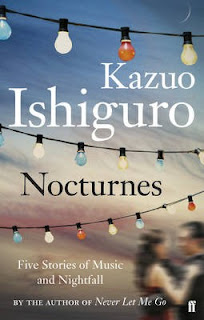The Dogs of Babel by Carolyn Parkhurst
What the Back of the Book Has to Say:
This exuberantly praised bestseller-one of the year's most admired and enjoyed fiction debuts--tells the story of a man's quest to solve the mystery of his wife's death with the help of the only witness: their dog, Lorelei. Written with a quiet elegance and a profound knowledge of love's hidden places, The Dogs of Babel is a work of astonishing and lasting power--a story of marriage, survival, and devotion that lies too deep for words.
Why I Picked It Up:
It was a good size for how much I thought I would read that week and when I read the back, I was super confused and thus, intrigued.
What I Think:
One of the things I find most interesting about the back cover of The Dogs of Babel is that it really gives you absolutely no idea of what you're getting yourself into. You know the main character's wife has died and the dog witnessed it. That's it. It's not much to base a plot on, if that's all you have. Also, that last little bit, the story of "marriage, survival and devotion that lies too deep for words" seems out of place with the beginning of the paragraph. Is this a mystery? Is it a love story? Where does the dog fit in? All of these questions sprung to mind when I first read that back cover and thus, I picked up the book. So I suppose the back cover did its job.
The basic plot of the novel is this: A linguistics professor is called home from work one day as his wife was found dead in their backyard, seemingly from a fall from their apple tree. The reason she was found so quickly was because the couple's dog, Lorelei, had managed to get the neighbor's attention. Everything seems to point to it being an accident, despite Paul (our hero) knowing that there was no reason Lexy (his wife) would ever climb that tree.
Grieving, Paul turns to the only thing that remains: their dog, Lorelei. As a linguistics professor, he is aware of the strange history of talking dogs. As Lorelei is the only witness to Lexy's death, he decides to take a sabbatical in order to teach Lorelei to talk. Obviously, his friends think that he's starting to lose it but he is determined to solve the mystery of Lexy's death.
One of the most interesting things about the novel is the way that it's written. Although it's in first person (cringe), there's a very stream-of-conciousness flow that's a delight to read. The way the chapters are broken up, the reader weaves in and out of reminiscences of Paul's, switching from a session with Lorelei to a memory of Lexy. Through these flashbacks, Paul and Lexy's entire history is told, from the moment they met at a garage sale to the last day before she died. Although we start off by knowing that Lexy is dead, we engage with her character (through Paul) for almost the entire novel.
The book is an interesting study in grief, especially as Paul falls deeper and deeper into his studies of dogs. Admittedly, though, there are a few plot twists in that section of the novel that seem a little bit much. How many secret dog-talking groups do you honestly think exist in the world? But it's all okay because the real story is Paul's history with Lexy and, indeed, Paul's bond with Lorelei.
The only problem I had with this book (and it's a big one) is the fact that, honestly, I couldn't stand Lexy. In my opinion, she is the definition of a Manic Pixie Dream Girl. She rolls into Paul's life and sends him on this whirlwind journey of self-confidence, while being bizarre and quirky at the same time. She makes masks for a living. She has random bursts of anger. Reading her character should make one seriously worry about her mental health. While I could see why she would be a fantasy to a man like Paul, she never seemed like a real person to me. She was an ideal, a kind of character that no real woman would ever really be. That kind of ruined the book for me.
Interestingly, just as I started writing this review, it was announced that Steve Carell is to play Paul in an upcoming movie adaptation. I don't know how I feel about a movie of this coming out. Two hours of watching Lexy on a big screen? No thanks. I also don't really envision Paul much like Steve Carell but I suppose we'll just see how it plays out.
It's a quick read and it's interesting. I really did want to find out what really happened on the day Lexy died. The ending is rather abrupt and kind of made me dislike Lexy even more (especially considering this "devotion that lies too deep for words" nonsense) but I can honestly say that it was a page-turner. Just one that left a bad taste in my mouth.


